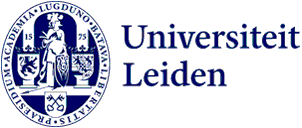
Former president South-Africa visits Campus The Hague
Former President Kgalema Motlanthe of South Africa gave a public lecture on Campus The Hague on 7 July to an audience of students and teachers, African ambassadors and diplomats, NGO staff and other people interested in Africa. His story was about the economic transformation of Africa.

Kgalema Motlanthe served as President of South Africa in 2008-2009, then as Vice President for another five years. During apartheid he was imprisoned on Robben Island for ten years because of clandestine activities for the ANC. After his government tenure, in 2014, he became a patron of the Kgalema Motlanthe Foundation, which aims to contribute to equitable and inclusive growth in South Africa and the entire African continent.
Africa strategy
In her welcome speech, Annetje Ottow, President of the Executive Board, emphasised the importance of universities and educating a new generation of thinkers, doers and policy makers to tackle global, interconnected problems. Africa is a priority in Leiden University's Strategic Plan and a university-wide Africa strategy is expected this autumn. Africa is also an important theme within European university networks, such as UNA Europa.
International students
In her final point, Ottow appealed to the Members of Dutch Parliament. ‘If we are to believe the media and some politicians, there is an “unbridled” flow of international students who want to study in the Netherlands and thus put pressure on the housing market’, she said. Without denying any difficulties, we should be proud that smart people from all over the world, including from Africa, find our higher education very attractive, she said. Moreover, it is good news given the structural shortage on the Dutch labour market, and it is equally important that Dutch students get to know a diverse international student group in order to prepare them for the jobs of the future, Ottow concluded.

Multiple difficulties
Of the 54 countries that make up Africa, it is difficult to find two that are the same, Motlanthe began his lecture. But what most countries have in common is a colonial history and multiple difficulties post-independence. Large-scale development programmes such as the African Union's ‘Agenda 2063: The Africa We Want’ and the United Nations’ Development Goals provide a framework for inclusive and sustainable development in Africa. To achieve this, many factors need to be sorted out, Motlanthe stressed. Democratic governance, political will and ethical leadership are essential to govern a country well. ‘But real change can only be successful if people can decide for themselves and truly participate in their political, social and economic development.’
Equal partnerships
On economic development, Motlanthe stated that many African countries are in a disadvantaged position: they often only export raw materials, while adding value to products mostly takes place outside the continent. To make real progress, equal partnerships are needed, and he mentioned the partnership between the EU and the Southern African Development Community (SADC), as a bad example of this. Recently, a case about import tariffs was settled in favour of the EU, thus confirming old power relations and setting an unfair precedent for future cases, Motlanthe said. He described it as a ‘partnership between unequals’.
'Blue economy'
In contrast, he mentioned the African Continental Free Trade Area (AfCFTA) as an important boost to intra-Africa trade. For the AfCFTA to succeed, industrialisation and economic transformation are necessary. Sectors with great potential - according to Motlanthe - are the pharmaceutical industry, cotton and clothing, the car industry, and baby nutrition. Infrastructure projects are important as well, but will not automatically lead to more economic development. In this respect, Africa could learn from Latin America and Asia, where improving the agricultural productivity of small-scale farmers has made a difference. ‘Although Africa is home to 60% of the world's uncultivated arable land, it is still a net importer of food’, he underlined. Removing trade barriers, green industrial development, and a ‘blue economy’, in which African countries are the custodians of the oceans, can contribute to economic progress.
Listen to young people
We should listen to young people in Africa, Motlanthe concluded: they are Africa's greatest resource. ‘We should use their ideas, empower them with education, and invest heavily in young entrepreneurs.’ Young people had their say during the Q&A after his lecture. Students asked questions about a common African identity, the role of African countries as mediators in the war between Ukraine and Russia, and the power of the dollar. Motlanthe took ample time to answer them all.
Pictures: Patrice Borger
